All I Want For Christmas Is A Health Tracker – CTA on Shopping Tech for the Holidays
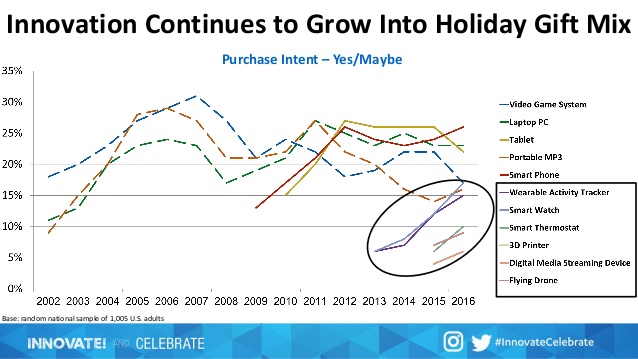
Technology is high on U.S. consumers’ holiday shopping lists for the 2016 holiday season, according to the CTA (Consumer Technology Association). And wearable activity trackers are a fast-growing segment of consumer technology purchases expected in shoppers’ carts (both physical and online virtual) this fourth quarter of 2016, CTA notes in its 23rd Annual Holiday Outlook consumer survey research. The line graph illustrates the hot categories in this year’s holiday gift mix, led by smart phones (in red), tablets, laptops, and video game systems. But the proportion of people intending to purchase smartwatches now ties with video game system sales, closely followed
Doctors Are Growing to Like Digital Health Tools, Says the AMA
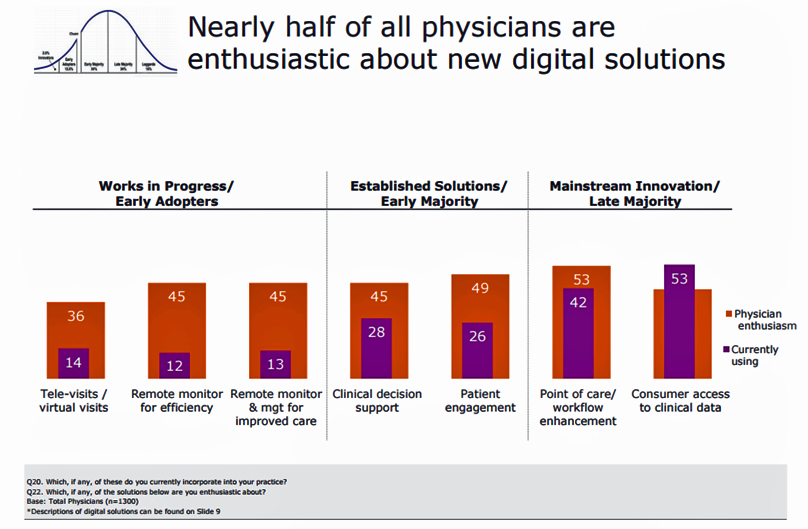
Notwithstanding the head of the AMA recently referring to digital health technologies as “snake oil,” it appears that one-half of physicians is keen on digital health. And scale, not age, matters when it comes to doctors using digital health tools. The American Medical Association (AMA) surveyed physicians on their use of digital health tools, finding that primary care physicians (PCPs) and doctors working in larger and more complex practices tend to be more digital. In Physicians’ motivations and requirements for adopting digital clinical tools, the AMA’s digital health study, “Physicians are optimistic about digital health innovation and its game-changing potential
Tracking for Health in America: More Men Than Women, More Young Than Old
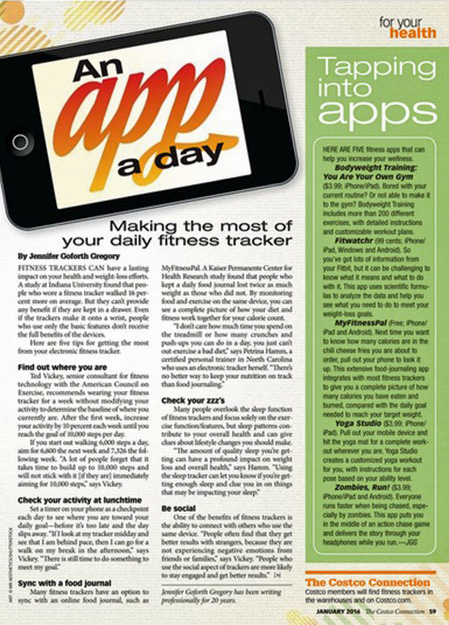
1 in 3 consumers track health or fitness via an app, wearable technology, or smartwatch, according to GfK’s global survey on Health and fitness tracking published in September 2016. The key reasons people monitor health or fitness are to maintain or improve physical condition/fitness (for 55%) and to motivate oneself to exercise (for 50%), across the 16 countries GfK surveyed. Improving energy level, feeling motivated to eat and drink more healthfully, improving sleep, making tracking part of a daily routine, losing weight, and being more productive were cited as reasons to health-track by at least one-fourth of health citizens
Most Digital Health Consumers Say They Benefit from Connected Health
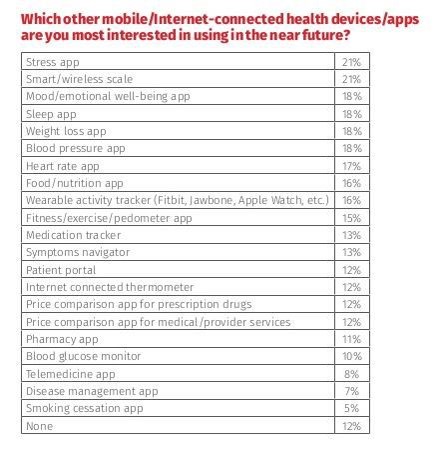
Managing stress, weight, mental health, sleep, and heart function are among the top-most desired reasons already-connected health consumers are interested in further connecting their health, according to The 2016 HealthMine Digital Health Report. The most popular tools people use to digitally manage their health deal with fitness and exercise (among 50% of connected health consumers), food and nutrition (for 46%), and weight loss (for 39%). 3 in 4 people who use digital health tools say they have improved their health by connecting to these tools. 57% of digital health users also say going health-digital has lowered their healthcare costs. The survey
The State of Mobile Apps in 2016 and Healthcare Implications
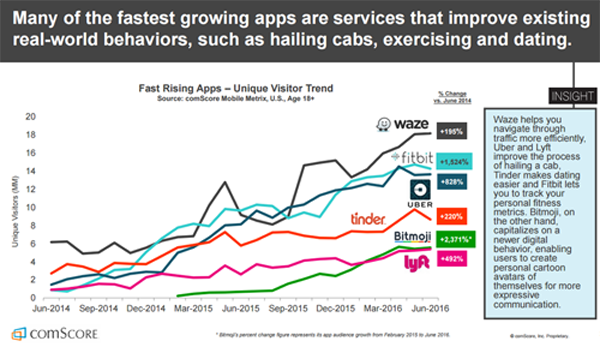
Some of the fastest-growing mobile phone apps help people manage life-tasks every day, like getting real-time directions when driving, finding dates, getting rides, and tracking health, according to The 2016 U.S. Mobile App Report from comScore. The chart from the comScore Mobile Metrix survey illustrates some popular apps well-used by people on smartphones, with one of the fastest growth rates found for the Fitbit app — 1,524% growth over two years, from June 2014 to June 2016. In comparison, the Uber app visits increased 828% in the period, half as fast, and the Tinder app, 220%. Some key topline results of
Consumers Seek Quality and Privacy In Tech-Enabled Healthcare

Consumers are open to technology-enabled healthcare, but look to providers to ensure quality and privacy of patients’ personal health information, according to Will Patients and Caregivers Embrace Tech-Enabled Healthcare?, based on the Deloitte 2016 Survey of US Health Care Consumers. Seven in 10 consumers would use at least one of the technologies Deloitte served up in its study, with telemedicine at the top of the list: 49% of people favor telemedicine for post-surgical care, 48% for chronic disease management, 36% for care while traveling, and 32% for minor health issues. While Millennials are generally keener across-the-board for tech-enabled health care,
What UPS Knows About Retail Shopping Applies to Health
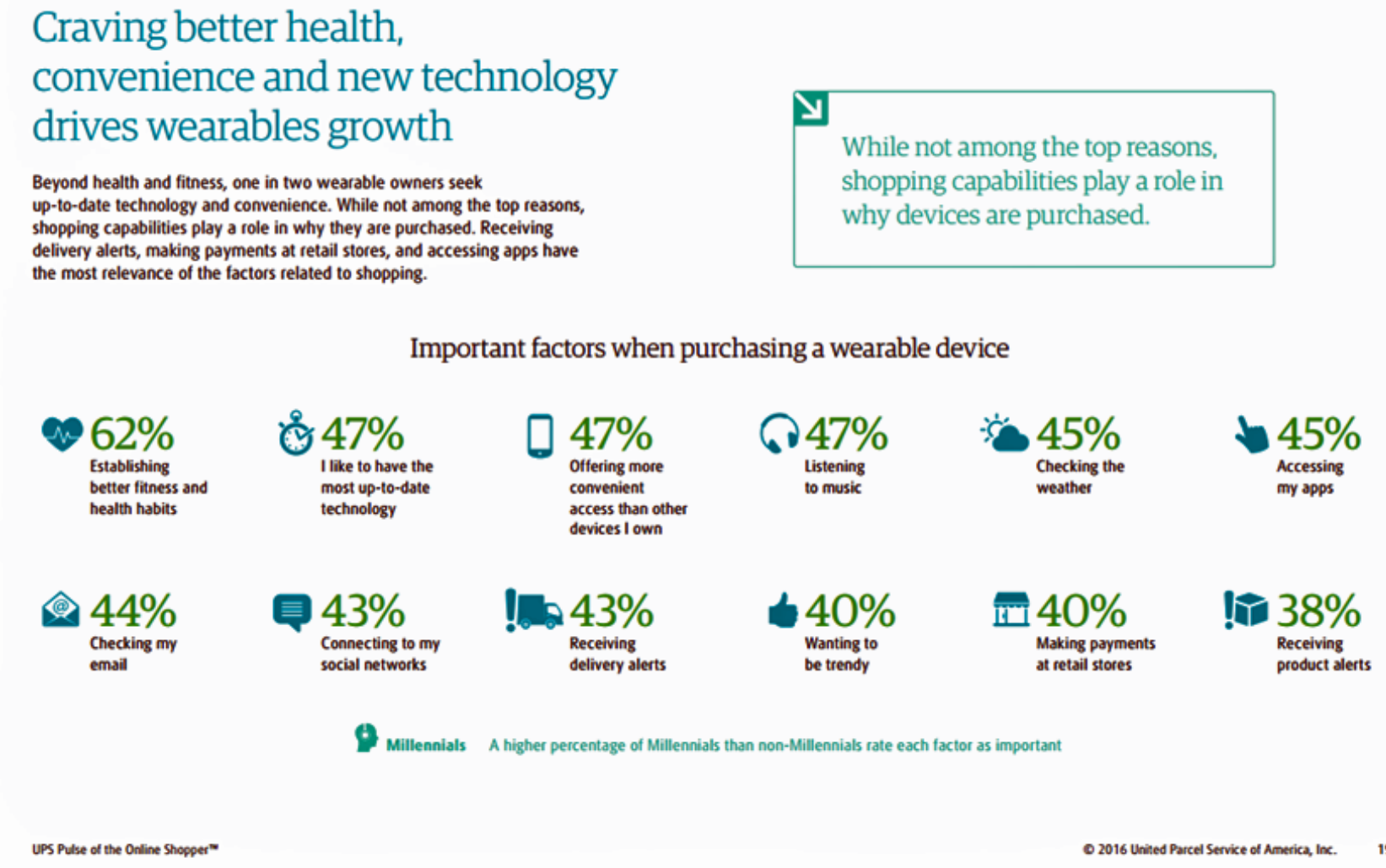
Some 18% of U.S. consumers use a wearable device, according to the 2016 UPS Pulse of the Online Shopper survey. UPS researched tech-savvy shoppers with an eye to understanding where and how people buy stuff – and of course, how they ship it given the company’s core logistics business. (“Tech-savvy” in this study means consumers had purchased at least two items online in a typical 3-month period). Overall, Millennials adopt devices and do more tech-shopping compared with other generations, but UPS notes that other groups are indeed shopping for tech and shipping it, too. Millennials are leading the way,
Consumers Show Low Demand For Connected Health, Parks Finds
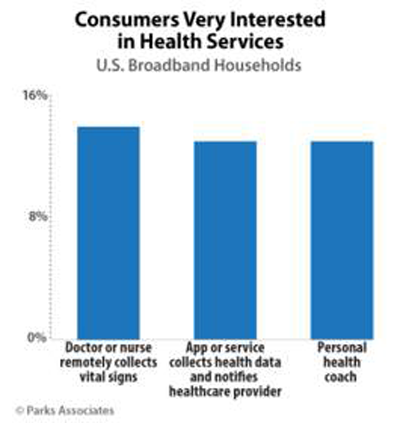
People living in only 1 in 10 homes with broadband are “very interested” in connected health services, like a personal health coach, a remote health monitoring app that connects to and notifies a healthcare provider, or a clinician collecting vital signs virtually. This finding comes out of a survey from Parks Associates. This is a relatively low consumer demand statistic for digital health, compared with many other surveys we’ve mined here on Health Populi. While these are not apples-to-apples comparisons — note that Parks Associates focus on broadband households — a recent study to consider is Accenture’s consumer research published in March
The Growing Aisles of Wearable Health Devices
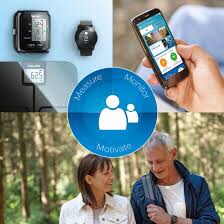
When a person dons a piece of wearable technology, they first look to engage with some aspect of health or fitness before they seek entertainment. To satisfy that demand side of the market equation, we’re seeing a stream of devices, platforms, and corporate strategies trying to reach the wearable tech consumer. Today, Philips announced its expanding strategy for digital health, launching devices to help people, in Philips’ words, measure, monitor, and stay motivated for personal health. The company is offering a health smartwatch, a weight scale, an ear thermometer, and two blood pressure monitors (for wrist and upper arm), all





 I was invited to be a Judge for the upcoming
I was invited to be a Judge for the upcoming 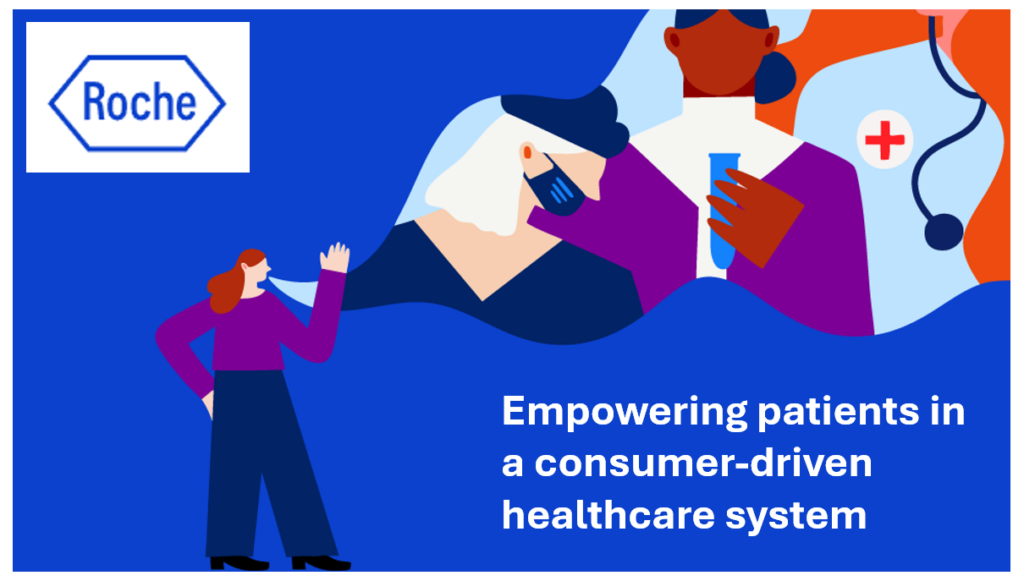 Thank you Team Roche for inviting me to brainstorm patients as health citizens, consumers, payers, and voters
Thank you Team Roche for inviting me to brainstorm patients as health citizens, consumers, payers, and voters  For the past 15 years,
For the past 15 years,